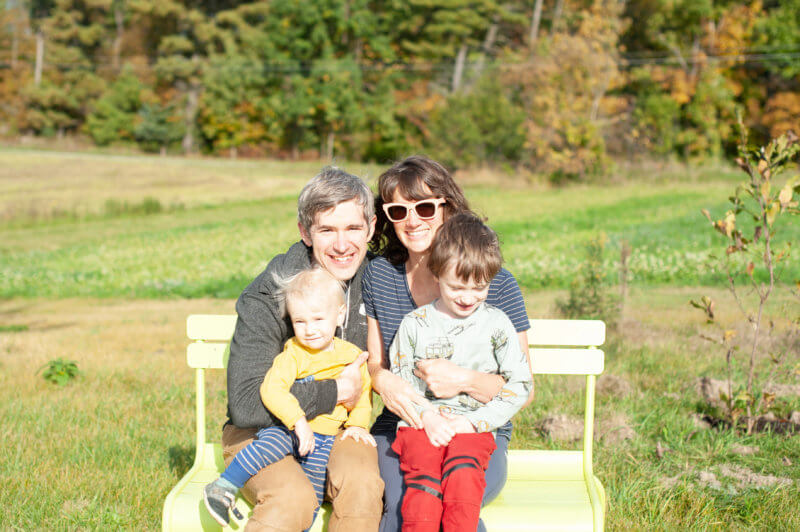[ad_1]
By Phyl Newbeck, Contributor
Staunch supporters of local agriculture, Justin Reidy and Meaghin Kennedy have found a new way to ensure that those with limited resources have access to good food. The couple supports Northeast Organic Farming Association of Vermont’s farm share program, which provides reduced cost community supported agriculture (or CSA) shares to needy families, but they wanted to do more.

Courtesy photo. Justin Reidy and Meaghin Kennedy are working on a nonprofit to help get local produce to the needy.
“The problem with that program is that it’s only community-supported agriculture-based,” Reidy said. “CSAs are wonderful, but there is a limit to who can take advantage of them because there are upfront costs and limitations in where and when to pick up the produce. We thought there was room for additional support for those who couldn’t take advantage of existing programs.”
Reidy and Kennedy recognized that COVID had changed the way some farms operated.
“Several started farmstands and many adopted self-service models,” Reidy said. “That gave us the idea of a system of point-of-sale purchase with gift cards.”
With assistance from Northeast Organic Farming Association of Vermont, they created Farm Stand Together from their Charlotte home in late 2021. The pilot program launched this year.
The pilot program will provide gift cards to 115 families who will pick up produce at six farm stands, including Sweet Roots in Charlotte, Hudak Farm in Swanton, Bread and Butter Farm in Shelburne, Dog River Farm in Berlin, Wild Carrot Farm in Brattleboro and Jericho Settlers Farm in Jericho.
The gift cards can be used for any food products at the farm stands and can be spent all at once or spread out over time. A single user’s card is for $50, with $75 for couples and $100 for larger families.
“Operationally it’s not that complicated,” Reidy said. “We’re not doing income verification. Logistically, it’s just collecting names and addresses and sending out the gift cards. Our main limitation will be funding.”
Reidy and Kennedy are paying for the pilot out of pocket. But if the program is a success, they might consider affiliating with Northeast Organic Farming Association of Vermont or becoming a stand-alone nonprofit.
“The goal this year is just to get an understanding of what works and to see where the biggest needs and challenges are,” Reidy said.
Reidy and Kennedy met in the Washington, D.C. area. Kennedy’s work as an elementary school counselor led to her involvement in the farm-to-school movement. When the couple moved to New York, she continued in that field while also working for a start-up that promoted farmers markets.
From there, the couple moved to Portland, Ore., where Reidy was a staff engineer for AirBnB. These days he serves as the director of product at a video messaging start-up called LOOM, which, even before the pandemic, was an entirely remote operation.
Kennedy is currently focusing on the couple’s five-year-old and 22-month-old children. When they get older, she hopes to do some farming on their property with the goal of furthering the couple’s mission of providing food for those in need.
Reidy praised Northeast Organic Farming Association of Vermont for their assistance in establishing Farm Stand Together: “They are doing such strong work in Vermont for those with food insecurity, as well as advocacy work and supporting Vermont farmers and healthy agricultural practices. I can’t imagine a better farm advocacy organization.”
Reidy and Kennedy are pleased with the community they’ve found in Vermont.
“I think Vermont is extremely blessed with its agricultural history and the amazing farmers and farm stands across the state,” Reidy said. “It’s a state with a strong agricultural identity and ethos, even among those who aren’t farmers.”
Reidy gave the example of locals who wear baseball caps emblazoned with the name of their favorite farm as though it was a sport team that they supported.
“Vermont has food insecurity issues like any other state,” Reidy said, “but it is uniquely situated to address those issues in the form of community support and mutual aid.”
Farm Stand Together as simply one more tool to help bring healthy food to those who can’t afford it. “If we can work together to find creative opportunities, we can solve some of those issues using the bounty that our community members are producing and growing.”
[ad_2]
Source link

